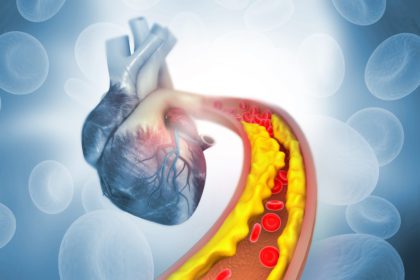Doctors and researchers have recently started to look at what dentists have been examining for years — your gums. They’re finding a relationship between the health of your gums and chronic disease.
Did You Know…
- Per a study in Finland, subjects with gum disease were 30% more likely to have a heart attack compared to subjects without oral infections.
- Per a six-year study of 44,119 men, those with tooth loss and gum disease were 70% more likely to have coronary artery disease.
- Another study demonstrated patients infected with periodontal bacteria had the highest levels of C-reactive protein (CRP) in their blood. CRP is an inflammatory marker and independent risk factor for cardiovascular disease.
- Another study confirmed periodontal bacteria reaches the human brain suggesting an inflammatory role in Alzheimer’s disease. Additional studies link chronic inflammation with memory loss.
- Pregnant women with moderate to severe periodontal disease are at greater risk of spontaneous pre-term birth.
What is Periodontal (Gum) Disease?
Below are the key things to know about gum disease:
- Gum disease, also called periodontal disease, is one of the most common infections in humans. Fifty percent of the American population has gum disease.
- It’s a chronic inflammatory disease that inflames your gums.
- It starts with bacteria (called plaque) that develops on the surface of the tooth root (gum line) and causes inflammation (bleeding gums).
- Studies show that chronic systemic inflammation, also called persistent, low-grade inflammation, is associated with chronic disease.
- Periodontitis is an advanced gum disease that destroys bone, resulting in tooth loss.
 Your body is made up of a rich network of blood vessels which move blood and immune cells, bacteria, and pro- and anti-inflammatory proteins through your entire body. So bacteria in your mouth can move to other organs.
Your body is made up of a rich network of blood vessels which move blood and immune cells, bacteria, and pro- and anti-inflammatory proteins through your entire body. So bacteria in your mouth can move to other organs.
Gum Disease Symptoms
Regular visits to your dentist can help with early diagnosis and treatment of gum disease. Symptoms include:
- Persistent bad breath
- Swollen, red, or tender gums that bleed easily
- Highly sensitive teeth
- Pain with chewing
- Loose teeth or changes in bite
- Receding gums or sunken teeth
Bacteria, Inflammation, and Disease
The problem with gum disease is two-fold as it is a source of 1) bacteria and 2) inflammation. Cardiac muscle tissue and arteries are vulnerable to inflammation which can lead to many conditions, such as a heart attack and stroke.
The researchers found that bacterial infections have a profound effect on:
- Cells within the arterial walls (endothelial cells)
- White blood cells that fight off bacteria
- Cells involved in clotting
- Blood coagulation or blood “thickening”
- Breakdown and storage of fats in cells
Gum Disease and Pneumonia
Bacteria in the mouth can move to the lungs and cause infections such as pneumonia. This is more common for people with periodontal disease. When this happens, the heart has to work harder to pump blood through your lungs which are inflamed from the pneumonia, thus increasing stress placed on the heart.

It’s especially important for older adults to be vigilant about daily oral hygiene. Floss daily and brush the teeth, tongue, roof/sides of the mouth to remove all traces of bacteria.
Gum Disease and Heart Disease
Inflammation may cause the plaque inside blood vessels to crack, rupture, and dislodge which could result in a blockage within an artery. It can also cause a ‘roughening’ of the arterial wall surface (endothelium) which encourages plaque to stick.
Heart disease is caused by a narrowing or blockage from plaque buildup within your blood vessels.
Gum disease may increase the risk of heart disease because inflammation in the gums and bacteria may eventually lead to narrowing of important arteries. When the smooth inner lining of your arteries become inflamed and “rough” (think sandpaper), arterial plaque* sticks to the artery wall (think spackling paste or putty).
Researchers discovered that cardiovascular care costs were 10 to 40 percent lower in those that received adequate oral care for their gum disease compared to those who did not. The implication from these results is gum health affects heart health.
Gum Disease and Heart Failure
There seems to be a potential risk factor for acute myocarditis and periodontal bacteria. Myocarditis is the inflammation and destruction of the heart muscle tissue and can lead to rapid heart failure.
Gum Disease and Other Chronic Diseases
There’s growing evidence that gum disease is associated with negative systemic health consequences. In one study from 2014, researchers studied people who had both gum disease and other diseases and conditions, such as:
- Type 2 diabetes – According to research studies, people with diabetes are at increased risk of developing gum disease. This is likely due to chronic systemic inflammation and the subsequent increased risk of infections. The risk decreases if you manage your diabetes.
- Rheumatoid arthritis
- Stroke (cerebral vascular disease)
- Coronary artery disease
- Spontaneous pre-term birth – Due to hormonal changes and increased blood flow, women who are pregnant are at increased risk of gum disease. Studies indicate that pregnant women with moderate to severe periodontal disease are at greater risk of spontaneous pre-term birth.
NOTE: As mentioned, fifty percent of all adults have gum disease. Knowing how bacteria and inflammation are involved in developing disease, it’s likely not a coincidence that almost half of all Americans also have heart disease.
Longevity Linked to Your Gums
Dental treatment can be as simple as cleaning the teeth above and below the gum line, called “scaling and root planing”. In more advanced cases, surgery is necessary.
Due to the strength of the link between gum and heart disease, it’s imperative that oral healthcare and medical professionals prepare better prevention programs that value interventional periodontal care for not only good oral health but overall general health.
![]() Karen’s Fit Tip: Manage the bacteria that starts the inflammatory cascade of events. Follow an anti-inflammatory diet high in antioxidants + an anti-aging dental diet.
Karen’s Fit Tip: Manage the bacteria that starts the inflammatory cascade of events. Follow an anti-inflammatory diet high in antioxidants + an anti-aging dental diet.
Floss daily and brush at least twice a day. See a dentist twice a year. Treating gum disease may lessen the adverse consequences of some chronic systemic conditions, so be sure to make dental health a priority and part of your daily routine.
On the horizon… scientists from the University of Melbourne have developed a vaccine to treat gum disease, but has only been tested in mice. The vaccine stimulates the immune system to produce antibodies that prevent bacteria from accumulating.





